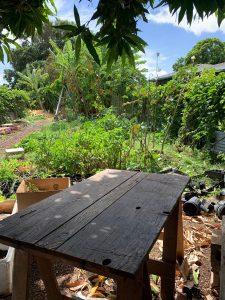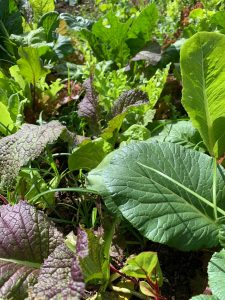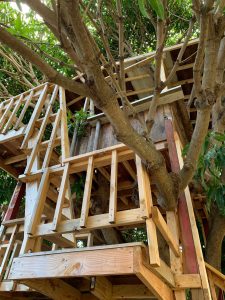Rev. Noriaki Fujimori
Let’s face it: We live in a world that creates too much waste. Here are some words of wisdom—“Mottainai.”
The Japanese phrase “Mottainai” has various meanings, including “what a waste,” “try not to waste,” and “appreciate what you have.” This phrase has been passed down to generations from parents to children, from teachers to students and from friends to friends. This word also embodies the Buddhist teaching of interdependence of all things, especially mankind to nature, as well as appreciation for the resources we consume and use.
Ms. Wangari Maathai (1940-2011), an environmentalist activist from Kenya and Nobel Prize winner, learned of this phrase when visiting Japan in 2005. She was so impressed by its meaning and significance, she adopted it for her campaign name at the United Nations to promote worldwide environmental conservation. She felt the phrase nicely expressed the importance of the “Three R’s” of conservation—“reduce,” “reuse,” and “recycle,” to which she added “respect,” meaning respect the earth’s limited resources.
As the phrase Mottainai gained a higher profile, people wrote songs about it, one of which appears above.
According to a sutra, the Buddha’s disciple Ananda received new garments from a king to distribute to others. The king questioned Ananda:
“What will you do with the old garments?”
“We will make bedcovers out of them.”
“What will you do with the old bedcovers?”
“We will make pillow cases.”
“What will you do with the old pillow cases?”
“We will make floor covers.”
“What will you do with the old floor covers?”
“We will use them for foot towels.”
“What will you do with the old foot towels?”
“We will use them for floor mops”
“What will you do with the old floor mops?”
“We will tear them into pieces, mix them with mud and use the mud to plaster the house walls.”
(from “The Teachings of Buddha, published by Bukkyo Dendo Kyokai)
Here at the Palolo Higashi Hongwanji temple in Hawaii, we recently created an organic vegetable garden and a treehouse with a spirit of mottainai.
Our vegetable garden used countless dead leaves from the trees. Many banana stems were used to make the vegetable garden. We used soil rich in nutrients made with compost from our leftover food.

Before I had been throwing away dead leaves and banana stems by putting them in plastic bags that were hauled away as rubbish. Starting this year, we decided to put them to use. Now we recycle all dead leaves and stems with fantastic results. Our garden is thriving.

To make the treehouse, Mr. Ito asked if we had any leftover lumber to use. He made most of our tables and benches from recycled materials, such as lumber left by our predecessors at the temple. He found wood to make our treehouse, so it was another example of the practice of “reuse” and “recycle.”

“Every article entrusted to us must be used with good care in some useful way, because it is not “ours” but is only entrusted to us temporarily.”
(from “The Teaching of Buddha”)
I can now say the Mottainai philosophy helped build our garden. Many people came out to help for which I feel much gratitude, which is also part of the meaning of Mottainai.
I believe this philosophy will help save the earth. Let’s pass the mottainai way of thinking to the next generation and share it with friends in our communities. Please ask yourself, how can I practice the philosophy of Mottainai?
Rev. Fujimori is minister of Palolo Higashi Honganji temple in Honolulu, Hawaii.

